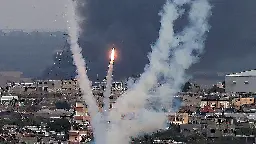Hezbollah - New General Megathread for the 3th and 4th of November 2023
Houthis Movement (Ansarallah) - New General Megathread for the 2nd of November 2023
Moderate U.S. Politician Believes Israel Should Only Kill Half Of Palestinians
Plantation Disaster Capitalism: Native Hawaiians Organize to Stop Land & Water Grabs After Maui Fire
Is lemmy dying?
Demerara Rebellion (1823) - New General Megathread for the 18th of August 2023
Mapuche political prisoners on life-threatening hunger strike: Gendarmerie is responsible, government turns a deaf ear
Native Hawaiians fear Maui wildfire destruction will lead to their cultural erasure, 'This is, for us, genocide,' says community leader Keʻeaumoku Kapu
Bulletins and News Discussion from August 14th to August 20th, 2023 - America's War On Pipelines
K’atl’odeeche First Nation forced from their homes for the second time this fire season
Water wars: Mexico conference denounces plunder of resources from Indigenous communities

![thelastaxolotl [he/him]](https://hexbear.net/pictrs/image/880afbe2-f5fd-4b17-87bc-33931161f095.jpeg?format=webp&thumbnail=128)










lol there are gunshots close to my house